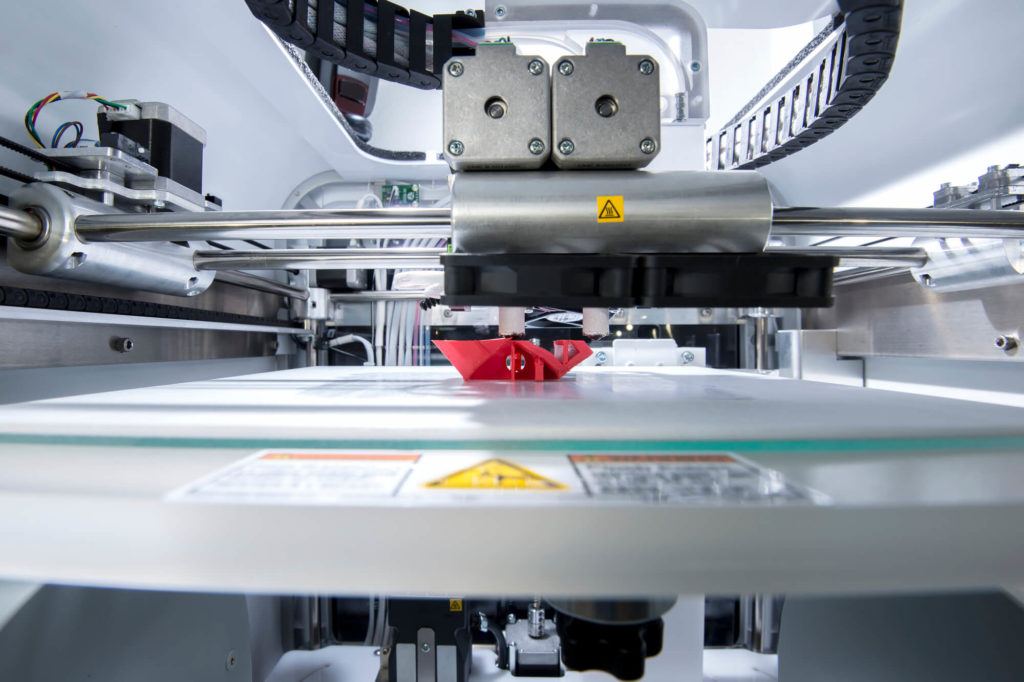Business
Construction industry gets creative with artificial intelligence, virtual reality
The world of construction is innovating. The use of AI can drastically help pinpoint safety hazards, as well as identify risks and compile valuable data. VR, on the other hand, can give workers a virtual structure on a location with specific data points. As technology continues to advance, workers in this sector will have an easier time planning and mapping out the buildings of the future.

As technology progresses, business leaders are always looking for ways to remain on top of their game. In the realm of the construction industry, the use of innovative technology is vital for developers to stay ahead. Countless trends have been introduced to the sector. Every new tactic helps workers approach their line of work in new and unique ways.
That being said, these five technological innovations in the construction industry prove to be among the most exciting.
1. Artificial intelligence (AI) and machine learning
AI has contributed to great strides in all industries. For example, enhancing marketing campaigns. Another is aiding in the analysis of complex medical data. The world of construction is, of course, no exception.
Construction sites undergo countless changes every single day. Every time a plan changes, a helpful worker may be able to scribble these changes down. However, there’s always room for error. This is especially when analyzing the data from a construction project. Humans may not be able to always identify every prospective issue or solution.
AI is an exciting innovation in the construction industry. This allows leaders to be more accurate and successful with their planning. Some uses for machine learning and AI in construction include pinpointing safety hazards. Too, identifying risks and compiling valuable data.
2. Self-repairing concrete
Concrete is a staple material on any construction site. Unfortunately, this resource is also notorious for creating cracks and leaks over time. This is an issue which has frustrated homeowners and construction crews alike for thousands of years.
But, there’s a new type of concrete that combats deterioration. This is mostly due to leaks and external conditions. Commonly known in the industry as “bioconcrete,” this form of self-repairing concrete uses bacteria to produce limestone. This fills in any gaps or cracks in a structure before corrosion or decay occurs. It’s projected to completely transform the construction industry. It will even affect the architecture industry moving forward.
3. 3D printing
3D printing has been relevant in many industries in the modern world. For those in the construction industry, 3D printing is drastically transforming the way workers can plan and execute projects.

The time, effort and money that go into the construction of a building can be significant. That makes it crucial to identify time- and money-saving tactics whenever possible. 3D printing can “print” whole buildings or smaller parts and components. With this, project leaders have an easy time identifying which parts of a building fit. They can also know right away which areas need work.
4. Machinery innovation
Innovation in machinery in the construction industry is worth mentioning. Today’s construction technology is more powerful and efficient than ever before. Tools, equipment and machinery may have fallen under a one-size-fits-all sales pitch in the past. That being said, modern-day technology now suits every worker’s specific project needs.
Construction crews requiring lifts, for instance, can sort through varying options. And it can be based on whether their work will be indoors or outdoors. They can select the desired power source. Another option is choosing platform features. They can identify the source of energy for their lift. They can even optimize their equipment for their work environment.
Newer machinery is built to include balance sensors. It’s amazing because it alerts the crew to any dangerous weight issues. Ultimately, a high degree of customization is now available to all. It will help maximize the efficiency and safety of every construction-based project.
Beyond that, modern machinery includes technology to increase environmental compliance. It also reduces maintenance concerns over time. Construction business owners can invest in equipment with monitoring systems. They can also build in data management. This helps them make decisions that increase fuel efficiency and avoid expensive repairs.
5. Virtual reality (VR)
Most of us have tried virtual reality for video games. However, this tech is no longer purely for entertainment. VR can help workers view a virtual structure on a location with specific data points.
Unlike a sketch or digital model, VR immerses you in the virtual reproduction of how a project will look. You can see a building, which makes it easier to collaborate with designers and builders, too.
When working alongside clients, VR can add a layer of transparency to a construction team’s efforts. For example, you can add prospective clients or tenants to a building. You can also furnish it with tables and chairs. You can create an overall finished look that’s in line with your planning. This technology helps curate a more positive customer experience. This assists the construction workers with their efforts along the way, too.
What innovations are next for the construction industry? As technology continues to advance, construction managers and workers will have an easier time planning and executing their plans while mapping out the buildings of the future.
(Featured image by DepositPhotos)
—
DISCLAIMER: This article expresses my own ideas and opinions. Any information I have shared are from sources that I believe to be reliable and accurate. I did not receive any financial compensation for writing this post, nor do I own any shares in any company I’ve mentioned. I encourage any reader to do their own diligent research first before making any investment decisions.

-

 Fintech2 weeks ago
Fintech2 weeks agoDruo Doubles Processed Volume and Targets Global Expansion by 2026
-

 Business1 week ago
Business1 week agoTopRanked.io Weekly Affiliate Digest: What’s Hot in Affiliate Marketing [Health Trader Affiliate Program Review]
-

 Africa3 days ago
Africa3 days agoAir Algérie Expands African Partnerships
-

 Crypto1 week ago
Crypto1 week agoEthereum Pushes AI Integration With ERC-8004 and Vision for Autonomous Agents























